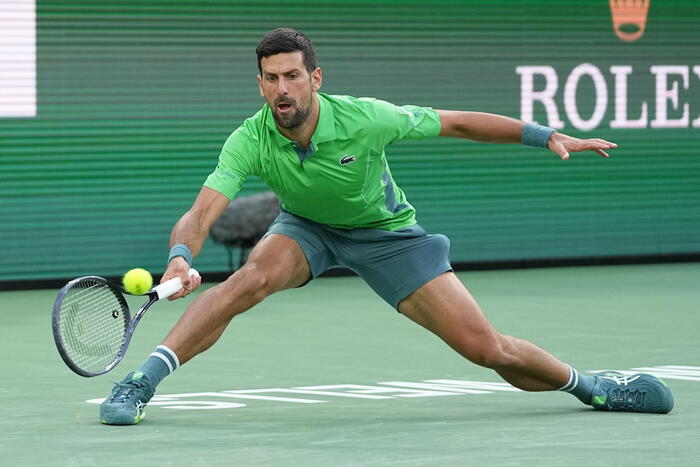In the hectic panorama of global health, one of the few certainties we have, unfortunately, is that some victims are worth more than others.
The health and economic emergency caused by the SARS-Cov2 virus triggered an unprecedented scientific, social and political response in the richest countries on the planet that has managed to tame the pandemic in less than three years and return our regions to a normal situation. .
Meanwhile, in fifty poor countries, 700,000 boys and girls under the age of five will die this year as a result of childhood pneumonia, the main infectious disease responsible for preventable deaths in childhood, and a scourge that could be cornered with a modest effort. but continued from the affected countries and the donor community.
There are 2,000 deaths a day, of which the vast majority correspond to babies under one year of age.
If the covid-19 emergency showed how far human beings can go when will and resources are put at the service of the common interest, the silent and preventable disappearance of these little ones constitutes a violent failure that should embarrass the international community .
The second Global Forum on Pneumonia, held in Madrid this week, offers an opportunity to do something about it.
Child survival has been a success story until recently
To be fair, child survival has been a success story until recently.
Just three decades ago, 90 out of every 1,000 children born alive died before reaching the age of five.
Today that number is 38, which means that the number of preventable deaths has been reduced by more than 1.5 million per year.
Malnutrition and malaria control programs have played an essential role in this effort.
But the decisive intervention was the expansion of basic immunization programs and access to antibiotics and medical oxygen, the most effective measures against childhood pneumonia.
In the year 2000, this disease was still killing 1.8 million children each year.
It was not a random process.
Between 2003 and 2013, the funding available to curb this disease and the diarrhea that kills children due to dehydration increased fivefold, reaching 2.8 billion dollars a year (about 2.5 billion euros).
Some of this money went to shore up primary care systems and the training of health workers, two measures that have proven their importance in crisis after crisis.
The entry into force of the Sustainable Development Goals (2015) expanded the international agenda and partially diluted interest in the most basic goals of health or education, including child survival.
The international community was losing steam.
According to data presented at the first Global Pneumonia Forum (January 2020), only three of the 30 most affected countries were on track to achieve the GAPPD targets by 2025. its acronym in English).
From then until now, the picture has worsened alarmingly.
The pandemic introduced extraordinary overloads in the financing and management of health systems, while distorting pharmaceutical supply chains.
The post-covid-19 economic crisis, the inflation caused by the war in Ukraine and the succession of climatic
shocks
have multiplied the fiscal fragility of States and the social and food vulnerability of families.
The international community, led by the governments and societies of the most affected countries, must place the fight against childhood pneumonia among its immediate priorities
For children, this has translated into a deterioration of all the determinants of their survival.
UNICEF estimates that at least 10 million girls and boys lack access to essential therapeutic foods to curb acute malnutrition.
In terms of immunization, the leap back is unprecedented: 67 million girls and boys were totally or partially unvaccinated between 2019 and 2021, while vaccination coverage levels decreased in 112 countries.
The response to this collective catastrophe cannot be fatalism.
Precisely because of what we have experienced during the last three years, we know that it is possible to respond to this step back with two steps forward.
The international community, led by the governments and societies of the most affected countries, must place the fight against childhood pneumonia among its immediate priorities.
This is the message conveyed by the II Global Forum on Pneumonia, which brings together representatives of 14 countries in Africa, Asia and Latin America that account for 60% of deaths from pneumonia.
With them participate public and private donor institutions, NGOs, companies and academic institutions willing to fulfill their responsibility.
The scientific revolution unleashed by covid-19 may give rise to new generations of vaccines and treatments in the coming years
It is not an unattainable goal.
The scientific revolution unleashed by covid-19 may give rise to new generations of vaccines and treatments in the coming years.
Even with the knowledge that we have today, it is perfectly possible to achieve our objectives if we have the political and financial muscle of the right actors.
According to the data presented at the Forum, the 14 countries present there could plummet their infant mortality rates by 80%, expanding to 90% of children the three main immunization guidelines ―pneumococcus;
measles;
and diphtheria, tetanus, whooping cough—reducing emaciation from malnutrition and ensuring prompt treatment with oxygen, antibiotics, and therapeutic food.
Spain has the opportunity to lead this effort.
The fact that our country and philanthropic institutions such as the La Caixa Foundation have hosted the two global pneumonia forums held to date shows that the Government and society understand the historical responsibility that we face.
Child survival is privileged territory for putting into practice the type of complex and inclusive interventions proposed by the new Law on Cooperation for Sustainable Development and Global Solidarity.
For this, it is essential to sustain the extraordinary financial effort made during the pandemic, diverting the resources allocated up to now to the fight against covid-19 in the global South to pneumonia and other causes of infant death.
Even in these times, when it is so difficult to reach broad and lasting agreements, we can agree on one thing: that the preventable death of a child violates the most basic principles of a decent global society.
We have the opportunity to become the first generation in history to put an end to this scourge, and we will do everything humanly possible to achieve it.
Any other position would make us complicit in this unnecessary tragedy.
José María Vera
is the general director of Unicef Spain;
Quique Bassat
is an ICREA researcher and director of the Malaria Program at the Barcelona Institute for Global Health;
Gonzalo Fanjul
is director of policy analysis at the Barcelona Institute for Global Health.
You can follow PLANETA FUTURO on
,
and
, and subscribe
here
to our 'newsletter'
.









